Research Lead
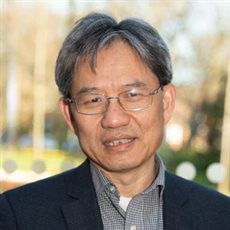
Founding Chamberlain Chair of Chemical Engineering
School of Chemical Engineering
Professor Yulong Ding is the founding Chamberlain Chair of Chemical Engineering at the University of Birmingham and director of Birmingham Centre for Energy Storage. His current research covers both fundamental (multiphase transport phenomena across length scales) and applied (new energy conversion and storage technologies) aspects.
He invented liquid air energy storage technology and led the ...
- Telephone
- +44 (0) 121 414 5279
- Email
- y.ding@bham.ac.uk
Research Fellow/Postdoctoral Researcher
Abdalqader Ahmad

Abdalqader has been working as research fellow at the university of Birmingham since 2017. He has done his PhD in the Mechanical Engineering at the University of Birmingham and worked as research fellow in the same department for one year before joining the Birmingham Centre for Energy Storage in 2018. A thermo fluid system is Abdalqader's primary research interest and he has very good experience in heat and power systems including renewable energy, thermal and cold energy storage systems, heat exchangers from their device to system levels in designing, modelling, optimizing and performances. Abdalqader has a strong heat and thermodynamic backgroundas his Bachelor and Master degrees were also in Mechanical Engineering. Abdalqader also has a strong numerical and CFD modelling using different software including MATLAB, ANSYS FLUENT, COMSOL and SOLIDWORKS.
Boyang Zou
Dr. Boyang Zou is postdoctoral researcher within the Birmingham Centre for Energy Storage. She has eight years of R&D experience in material structure and property enhancement. Base on the background in nucleation and crystallization, she branched out and applied skills in fundamentally understanding phase change and thermochemical materials in thermal energy storage field. In the current role, she has highly involved in salt-based material screening, formulation, characterisation and optimisation. Also, has been involved in understanding chemical and physical compatibility of salt-based materials with surfaces corrosion. Meanwhile responsible for the advancement of numerous business-critical commercial projects from lab-scale research and development through to commercial application.
Dr Boyang Zou supports the following projects:
- The Active Building Research Project (ABC);
- The Third Generation Heat Storage Technology Based on Thermochemical Heat Storage (BDH)
- Pool Boiling Effect on Drum Drying Process- P&G
- Cold Energy Storage-Based Cooling Technologies
- Optimal refrigeration and thermal energy storage integration for flexibility services- EEF149
- Pyro-processing Physical Properties Salt Handling – National Nuclear Laboratory
- Beer Thermostock- Estrella
- Demand Response using Off-peak Power for Liquefied Air Energy Storage Technologies (Droplet)
- Peak Reduction by Integrated Storage and Management of Air (PRISMA)
Helena Navarro
Dr Helena Navarro graduated in Chemistry at the University of Barcelona, followed by a Master in the same institute in Advanced Chemistry. In 2013 she obtained her PhD in Materials Science and Technology, focused on the materials development for Thermal Energy Storage applications. Her contributions have been awarded an Extraordinary Master Award and a distinction Cum Laude in her doctoral thesis. She worked as an assistant professor in the Materials Science and Metallurgical Engineering at the University of Barcelona. From 2014 to 2017 she was a research fellow at the University of Birmingham. She obtained a European Research Development Fellow in 2017 at the University of Birmingham, within the Birmingham Centre of Energy Storage. She graduated in Chemistry at the University of Barcelona, followed by a Master in the same institute in Birmingham, within the Birmingham Centre of Energy Storage. Her research focuses on the development of structured high energy density thermal energy storage materials for heat and cold applications. Her work contributed to several EPSRC (UK research council) and industrial projects such as the SuperGen Energy Storage Hub (EP/L019469/1), Next Generation Grid-Scale Thermal Energy Storage Technologies (EP/L014211/1) and Energy Storage for Low Carbon Grids (EP/K002252/1). Dr Navarro collaborates with various research group and institutions across Europe.
Dr Navarro supports the following projects:
- High Performance integrated Heat-Power-Cooling
- Integrated GaN-Diamond Microwave Electronics: From Materials, Transistors to MMICs
- BeerTHERMOSTOCK: Development of innovative thermal energy storage system with phase change Materials for industrial processes in the brewing industry.
- nano-Structured PCM Composites for Compact Space Heating
- Joint UK-India Clean Energy Centre (JUICE)
Jie Chen
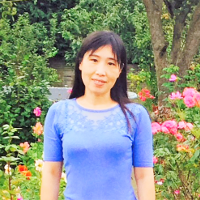
Having an educational background in Environmental, Analytical and Applied Chemistry, and long working experience in research/teaching laboratories in universities and companies, Jie gained significant experience in major techniques for chemical and physical properties characterisation. She received systematic education in the subject of chemistry in China, Japan and England, and worked in chemical laboratories at universities and companies for more than 20 years. After graduating from the Department of Chemistry (Applied Chemistry), Southwest Normal University, China, Jie worked as an engineer in Comprehensive Utilization of Resource Research Centre of Chongqing University for 9 years. Her research was on comprehensive utilisation of waste solid and liquid, such as flying-ash, waste PVC, waste Al-alloy, etc. She went to Japan in 1999, and studied a two-year Master course in the major of Environmental & Analytical Chemistry at Kyushu Institute of Technology, Japan. In 2006, Jie came to the UK and started a three-year industrial full-funded PhD programme in the School of Science, the University of Greenwich, London, she had been a PhD student for one year when the opportunity came up to join the Environmental department, Swinden Research & Technology Centre, Tata Steel (formerly Corus) as a graduate in September 2007. Jie had worked at chemistry group as a principal researcher as well as an environmental chemist for 10 years. Her research was focused on water quality, air quality and waste management for integrated steel industry. In addition to extensive laboratory research work, Jie was involved in project management, including project planning, progress tracking, internal/external communications and paper writing.
Jie joined the Birmingham Centre for Energy Storage (BCES) as a senior technician/lab manager in March 2018. Her role is solely responsible for managing a large suite of scientific equipment and the training of new staff, students and external clients who use equipment in the Thermal Energy Research Accelerator (T-ERA) and BCES facilities. From July 2019, she became a part time doctoral researcher under Professor Ding’s supervision, her PhD research project is thermochemical composite materials for heat energy storage, which is the area that she am particularly interested to study further.
Jie has supported the ABC and BDH projects related to thermochemical energy storage.
Wenzheng Cui
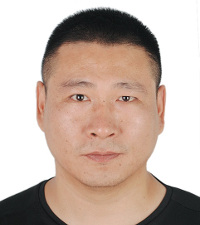
Wenzheng Cui is Marie Curie fellow in Birmingham Centre for Energy storage at the University of Birmingham. Prior to this appointment he was associate professor in Harbin Institute of Technology. He received his PhD from Dalian University of Technology. He is the author of a few research papers on heat transfer mechanism within nanofluids. His current work focuses on thermal energy storage, especially the application of renewable energy storage and usage.
Wenzheng supports the EU Marie Sklodowska-Curie fellowship: A new generation high temperature phase change microemulsion for latent thermal energy storage in dual loop solar field (THERMES) project.
Yanqi Zhao
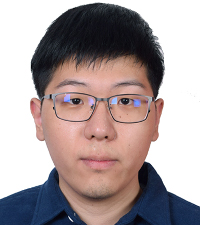
Yanqi’s research interests focus on thermal energy storage material and systems including phase change material, thermochemical energy storage material, thermal management system and novel HVAC system.
Yanqi supports the following projects:
- Research on key technologies for electric vehicles battery thermal management based on the phase change materials
- Optimal refrigeration and thermal energy storage integration for flexibility services
- Air conditioning system for Telecom Base Stations
PhD Student
Daofan Cao

Daofan began working at the Birmingham Centre for Energy Storage in 2018. Daofan’s research explores the energy transition challenges faced by the coal chemical. The penetration of renewables (especially variable renewable resources) can solve the problem in electricity generation by the coal source but in some countries (e.g. China, India, and so on) there is a growth demand with respect to the substitute in coal chemical sector. The aim of this project is to design a hybrid system that can consume excess energy from renewables and use the coal as the feedstock to produce chemicals including ammonia, hydrogen, methane, and methanol. Besides this, the topics about methanol economy and hydrogen also involved in this project.
Daofan supports the SUSTech Joint Program.

Harriet Kildahl
Harriet has been interested in energy and sustainability from an early age. She was involved in a project creating biobased plastics from cellulose in 2015-2016 and then conducted research on hydrogen storage using Frustrated Lewis Pairs in 2017-2018 at Maastricht University in The Netherlands. At Birmingham, she has been working on the decomposition of carbon dioxide into carbon monoxide or carbon using industrial waste heat or excess renewable energy. This carbon monoxide can be later converted into electrical energy or used in the production of useful chemicals through synthesis gas (carbon monoxide and hydrogen). This process can occur by using a thermochemical material which undergoes redox reactions in response to a change in temperature, in this case the barium calcium iron niobate perovskite family.
Hongkun Ma

Hongkun started her PhD within the Center of Energy Storage at the University of Birmingham in September 2019. She has been working on the fabrication and characterization of thermochemical materials for low-to-medium temperature heat storage.
Hongkun Ma supports the following projects:
- Research on high temperature thermal energy storage device with high effective storage densities for flexible heat supply
- The Active Building Centre (ABC) Research Program
Lin Cong
Lin’s PhD project focuses on the development of light-weight PCMs for cold-chain transportations. Thermal conductivity enhancers, nucleation and thickening/gelling agents are used to improve the thermophysical properties of the composite PCMs. In addition, the impact of PCM on a refrigerated vehicle was demonstrated using CFD simulations. A high level efficiency PCM unit was achieved.
Lin supports the Hubard project.
Siyuan Dai
Siyuan's research focuses on the use of phase change materials (PCMs) for thermal management of telecommunication base stations, which consumes a consideration amount of energy and is expected to be worse when next generation (5G, 6G, 7G) technologies are on the stream. The aim of the research is to develop an energy efficient thermal management technology to reduce energy consumption while maintaining the performance.
Siyuan supports the following projects:
- Jiangsu Industrial Technology Research Institute Project
- Beijing District Heating Group Project
Tongtong Zhang
Tongtong Zhang’s current research is focused on the optimization of the integrated energy system based on energy storage (liquid air energy storage), cold and heat recovery and utilization, and industrial process, etc.
Xuefeng Lin
Xuefeng's research focuses on the formulation of nanofluids, cooling performance test in automotive circulating cooling system and numerical simulation of heat transfer in heat exchanger. He is also studying the formulation of nanofluids, the measurement of cooling performance in the chip cooling system and the numerical simulation of heat transfer in the radiator.
Xufeng is supporting the following BCES projects:
- Study on enhancement of cooling performance with nanofluids
- Heat transfer enhancement for heat sink in electronic cooling using nanofluids

Xusheng Zhang
Xusheng studied Energy and Power Engineering at the Huazhong University of Science and Technology from 2011 to 2015. In 2019 he joined the Birmingham Centre for Energy Storage.
Xusheng's research focuses on exploiting the huge supercooling of phase change materials (PCMs) to fabricate long-term thermal energy storage (TES) or seasonal TES. In such PCMs, thermal energy can be stored in the supercooled liquid by quickly cooling or the strong intermolecular interaction between the PCMs molecules. They then release heat in a time of need to supply the heating system or generate the power by specific trigger method.
Yi-Chung (Barton) Chen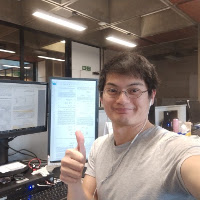
There are two parts to Yi-Chung's research. First, there is a focus on the research and development of a direct wind-to-heat technology using electromagnetic induction for generating heat. Secondly, Yi-Chung is carrying out an economic assessment of this system by simulating the operation of wind-powered energy system integrated with energy storage.
An illustrative diagram of the system being developed by Yi-Chung Chen can be foind below.
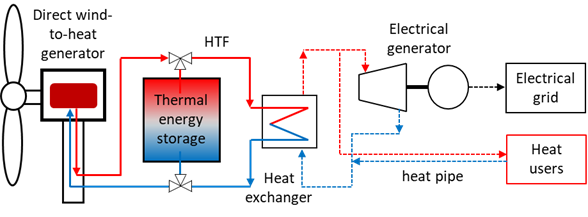
Yunren Li
Yunren’s research primarily focuses on cryogenic energy storage. Mr Li specialises in cryogenic phase change materials, the feasibility study of nitrogen/air liquefaction process by using CPCMs and cryogenic energy storage system designs.
Yunren supports the following projects:
- Peak Reduction by Integrated Storage and Management of Air (PRISMA);
- Demand Response using Off-peak Power for Liquefied air Energy storage Technologies (DROPLET).
Zheng Du
Mr Zheng Du received his BEng and MPhil, which are both in thermal engineering, at University of Science and Technology Beijing in 2009 and 2012, respectively. Then, he joined the State Nuclear Power Technology Company in China for a 4-years career as a nuclear thermal hydraulic engineer. In 2016, he quit the job and moved to south china, where he joined a start-up company and lead a team for manufacturing vacuum glazing. In 2018, He was accepted by University of Birmingham for PhD in Chemical Engineering supervised by Prof. Yulong Ding.
Now, his research is focused in advanced thermochemical energy storage system for solar system. The scope of this study is to develop a new low-temperature solar thermal energy storage system by using low-cost thermochemical material hydrated salt, which could store heat in chemical bond. We use encapsulation technique to improve the stability and dynamic performance of raw material. A novel solar directly heated packed-bed reactor is designed as well, which could dry the particle under one-sun irradiation and then release the energy by absorbing the moisture from air flow. The aim of this project is to develop a practicable system with ~kWh-level capacity.
Zheng currents supports the iHPC project.
Project Manager
Antzela Fivga
Dr Antzela Fivga is the project manager of the Supergen Energy Storage Network+. She is a chemical engineer and researcher with over 10 years academic and industrial experience in the bioenergy sector. Her research primarily focused on sustainable biofuels and has resulted in a number of publications in areas such as thermochemical conversion processes, waste to energy, and techno-economic feasibility studies. Currently, she is expanding her existing research interests to include the energy storage sector.